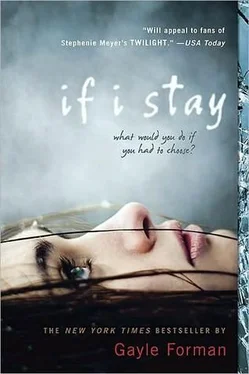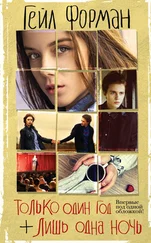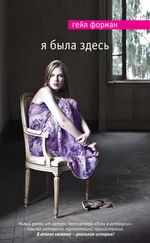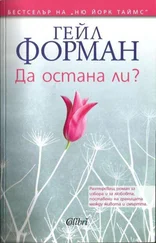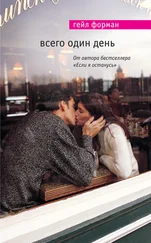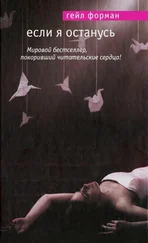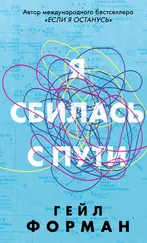“The fuck I will,” Henry shot back.
Henry didn’t speak to Dad for a few months after that. Willow would drop by from time to time, to play peace-maker. She’d explain to Dad that Henry was just sorting some stuff out. “Give him time,” she said, and Dad would pretend to not be hurt. Then she and Mom would drink coffee in the kitchen and exchange knowing smiles that seemed to say: Men are such boys.
Henry eventually resurfaced, but he didn’t apologize to Dad, not right away, anyhow. Years later, shortly after his daughter was born, Henry called our house one night in tears. “I get it now,” he told Dad.
Strangely enough, in some ways Gramps seemed as upset with Dad’s metamorphosis as Henry had been. You would have thought he would love the new Dad. On the surface, he and Gran seem so old-school, it’s like a time warp. They don’t use computers or watch cable TV, and they never curse and have this thing about them that makes you want to be polite. Mom, who swore like a prison guard, never cursed around Gran and Gramps. It was like no one wanted to disappoint them.
Gran got a kick out of Dad’s stylistic transformation. “Had I known that all that stuff was going to come back in style, I would’ve saved Gramps’s old suits,” Gran said one Sunday afternoon when we’d stopped by for lunch and Dad pulled off a trench coat to reveal a pair of wool gabardine trousers and a 1950s cardigan.
“It hasn’t come back into style. Punk has come into style, so I think this is your son’s way of rebelling all over again,” Mom said with a smirk. “Whose daddy’s a rebel? Is your daddy a rebel?” Mom baby-talked as Teddy gurgled in delight.
“Well, he sure does look dapper,” Gran said. “Don’t you think?” she said, turning to Gramps.
Gramps shrugged. “He always looks good to me. All my children and grandchildren do.” But he looked pained as he said it.
Later that afternoon, I went outside with Gramps to help him collect firewood. He needed to split some more logs, so I watched him take an ax to a bunch of dried alder.
“Gramps, don’t you like Dad’s new clothes?” I asked.
Gramps halted the ax in midair. Then he set it down gently next to the bench I was sitting on. “I like his clothes just fine, Mia,” he said.
“But you looked so sad in there when Gran was talking about it.”
Gramps shook his head. “Don’t miss a thing, do you? Even at ten years old.”
“It’s not easy to miss. When you feel sad, you look sad.”
“I’m not sad. Your father seems happy and I think he’ll make a good teacher. Those are some lucky kids who get to read The Great Gatsby with your dad. I’ll just miss the music.”
“Music? You never go to Dad’s shows.”
“I’ve got bad ears. From the war. The noise hurts.”
“You should wear headphones. Mom makes me do that. Earplugs just fall out.”
“Maybe I’ll try that. But I’ve always listened to your dad’s music. At low volume. I’ll admit, I don’t much care for all that electric guitar. Not my cup of tea. But I still admired the music. The words, especially. When he was about your age, your father used to come up with these great stories. He’d sit down at his little table and write them down, then give them to Gran to type up, then he’d draw pictures. Funny stories about animals, but real and smart. Always reminded me of that book about the spider and the pig — what’s it called?”
“Charlotte’s Web?”
“That’s the one. I always thought your dad would grow up to be a writer. And in a way, I always felt like he did. The words he writes to his music, they’re poetry. You ever listen carefully to the things he says?”
I shook my head, suddenly ashamed. I hadn’t even realized that Dad wrote lyrics. He didn’t sing so I just assumed that the people in front of the microphones wrote the words. But I had seen him sit at the kitchen table with a guitar and a notepad a hundred times. I’d just never put it together.
That night when we got home, I went up to my room with Dad’s CDs and a Discman. I checked the liner notes to see which songs Dad had written and then I painstakingly copied down all the lyrics. It was only after I saw them scrawled in my science lab book that I saw what Gramps meant. Dad’s lyrics were not just rhymes. They were something else. There was one song in particular called “Waiting for Vengeance” that I listened to and read over and over until I had it memorized. It was on the second album, and it was the only slow song they ever did; it sounded almost country, probably from Henry’s brief infatuation with hillbilly punk. I listened to it so much that I started singing it to myself without even realizing it.
Well, what is this?
What am I coming to?
And beyond that, what am I gonna do?
Now there’s blankness
Where once your eyes held the light
But that was so long ago
That was last night
Well, what was that?
What’s that sound that I hear?
It’s just my lifetime
It’s whistling past my ear
And when I look back
Everything seems smaller than life
The way it’s been for so long
Since last night
Now I’m leaving
Any moment I’ll be gone
I think you’ll notice
I think you’ll wonder what went wrong
I’m not choosing
But I’m running out of fight
And this was decided so long ago
It was last night
“What are you singing, Mia?” Dad asked me, catching me serenading Teddy as I pushed him around the kitchen in his stroller in a vain attempt to get him to nap.
“Your song,” I said sheepishly, suddenly feeling like I’d maybe illegally trespassed into Dad’s private territory. Was it wrong to go around singing other people’s music without their permission?
But Dad looked delighted. “My Mia’s singing ‘Waiting for Vengeance’ to my Teddy. What do you think about that?” He leaned over to muss my hair and to tickle Teddy on his chubby cheek. “Well, don’t let me stop you. Keep going. I’ll take over this part,” he said, taking the stroller.
I felt embarrassed to sing in front of him now, so I just sort of mumbled along, but then Dad joined in and we sang softly together until Teddy fell asleep. Then he put a finger over his lips and gestured for me to follow him into the living room.
“Want to play some chess?” he asked. He was always trying to teach me to play, but I thought it was too much work for a supposed game.
“How about checkers?” I asked.
“Sure.”
We played in silence. When it was Dad’s move, I’d steal looks at him in his button-down shirt, trying to remember the fast-fading picture of the guy with peroxided hair and a leather jacket.
“Dad?”
“Hmm.”
“Can I ask you a question?”
“Always.”
“Are you sad that you aren’t in a band anymore?”
“Nope,” he said.
“Not even a little bit?”
Dad’s gray eyes met mine. “What brought this all on?”
“I was talking to Gramps.”
“Oh, I see.”
“You do?”
Dad nodded. “Gramps thinks that he somehow exerted pressure on me to change my life.”
“Well, did he?”
“I suppose in an indirect way he did. By being who he is, by showing me what a father is.”
“But you were a good dad when you played in a band. The best dad. I wouldn’t want you to give that up for me,” I said, feeling suddenly choked up. “And I don’t think Teddy would, either.”
Читать дальше
Конец ознакомительного отрывка
Купить книгу
